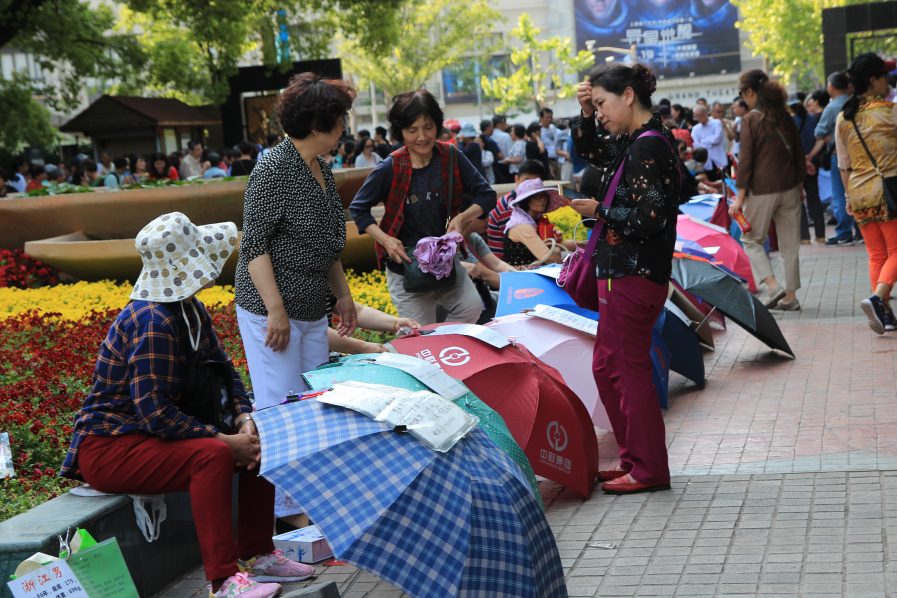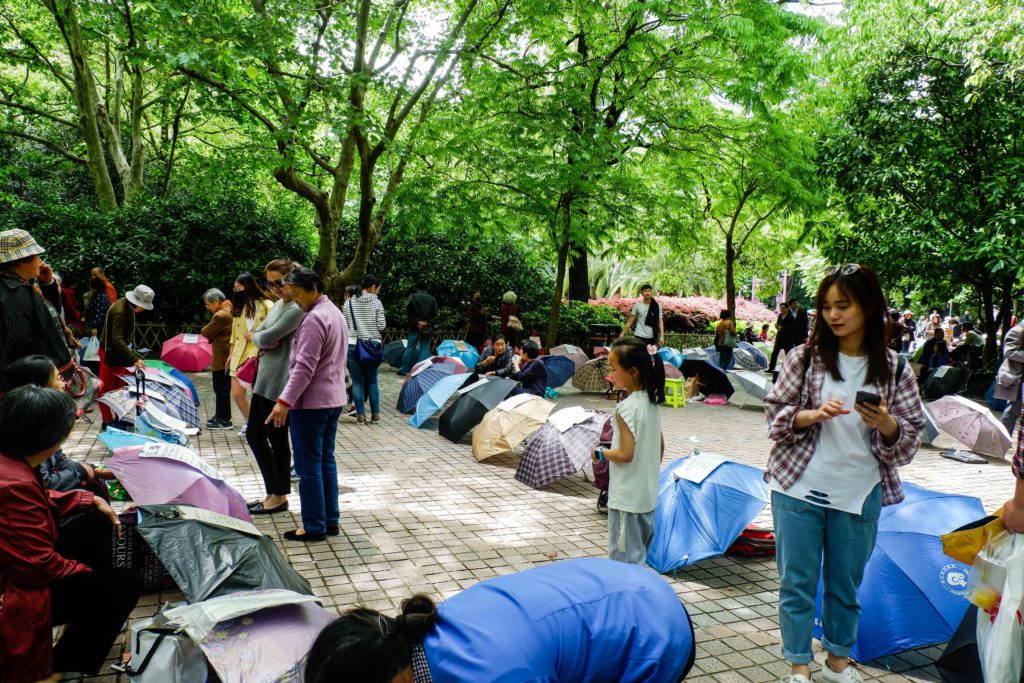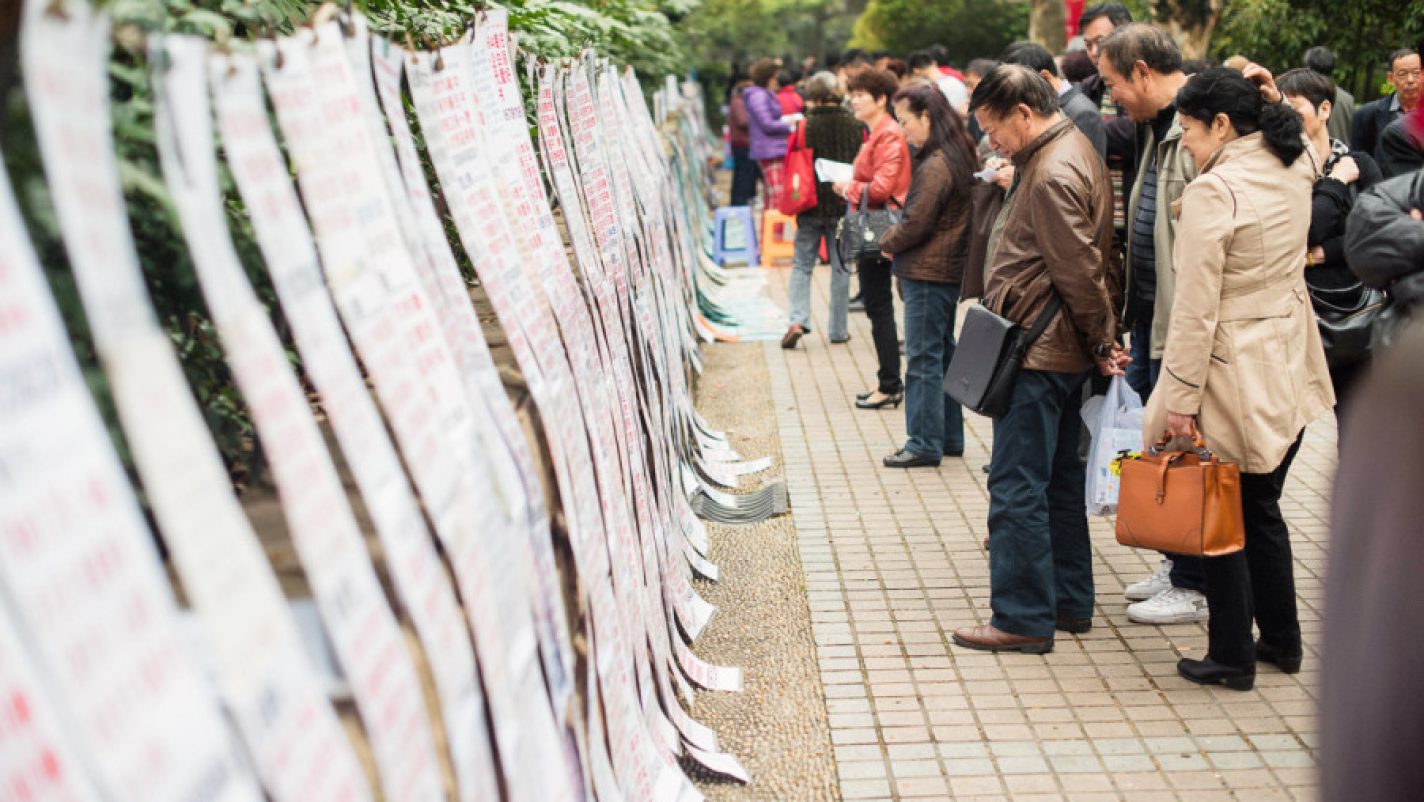Marriage, while appearing to be a personal choice, has often been utilized as a means of propagating and preserving a culture among people. As the family is considered the fundamental unit of society, the concept of marriage has served as a crucial tool in achieving this goal.
Nonetheless, due to various reasons, finding the right life partner has become a challenging task for millions of individuals worldwide. This difficulty has led to the emergence of “Marriage Markets” in China, which have become a phenomenon in themselves.
These Marriage Markets operate similarly to a typical neighborhood market, where people gather to advertise and browse their wares. However, the “products” in question are unmarried sons and daughters, making it a unique market.

Concerned parents, and sometimes grandparents, come together at popular public places such as People’s Park in Shanghai and several parks and other public locations in Beijing, to advertise and search for potential spouses for their unmarried children every weekend.
In general, parents utilize sheets of paper to highlight their child’s qualifications as a potential spouse and the attributes that they seek in a future son- or daughter-in-law. The Shanghai Marriage Market conducted a survey in 2018 which revealed that the majority of men preferred younger women as potential partners, while women sought someone closer to their age. The majority of advertisements pertained to individuals aged between 25 and 30.
Education and employment status are two crucial pieces of information that are included in every advertisement. The survey indicated that the dating pool consisted mostly of highly educated individuals, with two-thirds of both genders having earned a bachelor’s degree or higher. Among those who specified an educational requirement for potential spouses, women mostly preferred partners with a similar level of education, while men preferred partners who were slightly less accomplished.

Marriage market advertisements often emphasize the ownership of significant assets, with men expected to possess a car and a house before getting married. Individuals who own these assets are deemed more desirable than those who do not.
In addition, it is not unusual to come across advertisements that specify requirements based on the Chinese zodiac year and Western astrological sign of potential partners. Traditionally, people born in different zodiac years were believed to possess certain personality traits that made them more or less compatible with individuals belonging to different animal signs. Parents often tape these personal ads to umbrellas, which serve as makeshift stands, and engage in conversations with other parents to arrange blind dates between their children.
China’s largest marriage market takes place on weekends in Shanghai’s People’s Park and emerged organically in 2004. This phenomenon can be attributed to various factors, including a significant gender imbalance, deep-seated anxiety among parents, and a wave of emancipated women who have different marriage ideologies.
China’s one-child policy, implemented from 1979 to 2015, led to a severe gender imbalance. Due to the restrictions on family size and a preference for sons, there is a noticeable shortage of the female population in China, often referred to as the “missing women of China.”

Data from China’s National Bureau of Statistics indicates that the male population surpasses the female population by over 30 million, a result of the one-child policy. As a result, unmarried men of marriageable age, known as guang gun (光棍), or “bare branches,” live in societies where marriage is viewed as an essential part of an individual’s social status.
The marriage ideology is also evolving for many young women in China. Highly educated and high-earning women are not in a rush to get married, as they have more options than women in previous generations and prioritize their careers.
Ironically, women who remain unmarried into their late twenties and beyond, despite their educational and financial achievements, are often stigmatized as 剩女 (shèngnǚ, “leftover” women) and are pressured to lower their “unrealistic” standards in their search for a partner.
One consequence of this societal pressure is the marriage market, where many parents are eager to marry off their children and advertise them at the market, often without their children’s consent.
